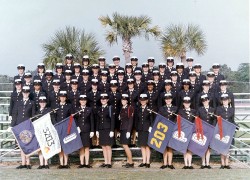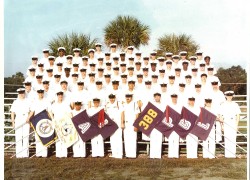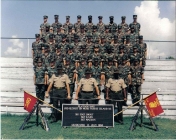Specialty Summary. The Spectrum Operations technician analyzes requirements and requests frequencies to support terrestrial, aircraft, and space systems and coordinate radio, radar, land, and other electromagnetic radiating or receiving requirements. They possess a solid understanding of wireless communications systems technologies and configurations and provide guidance to program offices, developers, and potential users of radiating and receiving equipment planned for introduction into the Air Force inventory and for modification to existing equipment.
Duties and Responsibilities:
Engineers, nominates, and assigns frequencies to support communications and operational requirements. Coordinates frequency needs with Federal, military, and civil spectrum management agencies. Secures operating authority, and ensures the least possible interference is caused or received by Air Force electromagnetic systems. Reviews spectrum interference reports and helps resolve electromagnetic interference problems.
Analyzes radio frequency spectrum requirements and determines compatibility with other users considering transmitter and receiver specifications, antenna data, emission characteristics, and modes of radio wave propagation. Examines radio link deficiencies and recommends corrective action to improve system performance. Recommends solutions to electromagnetic compatibility problems.
Maintains frequency records and associated databases. Provides guidance on the spectrum certification process for electromagnetic radiating and receiving equipment planned for introduction into the Air Force inventory, and for modifications to existing equipment. Reviews plans and programming documents spectrum management actions. Prepares frequency annexes for contingency and operations plans. Examines spectrum allocation data and frequency assignment records to ascertain suitability of specific equipment planned for deployment.
Performs as joint task force spectrum manager. Provides spectrum management guidance to units deploying radio frequency equipment to support contingency, exercise, or wartime requirements. Analyzes and de-conflicts frequency assignments and databases to develop joint communications and electronics operating instructions.
Evaluates and assists electromagnetic spectrum management activities. Determines if spectrum support is adequate and recommends changes. Educates customers on optimal and proper use of the electromagnetic spectrum. Plans for current and future electromagnetic spectrum needs. Identifies and locates Radio Frequency interference sources.
Specialty Qualifications:
Knowledge. Knowledge is mandatory of: radio propagation factors, including effects of antenna design, power, type of emission, frequency, and effects of terrain; national, international, and military regulations governing use of the electromagnetic spectrum.
Education. For entry into this specialty, completion of high school is mandatory. Additional courses in algebra, geometry, and physics is desirable.
Training. For award of AFSC 3D134, completion of Spectrum Operations initial skills course is mandatory.
Experience. The following experience is mandatory for award of the AFSC indicated:
3D154. Qualification in and possession of AFSC 3D134. Also, experience performing spectrum management engineering, selection, negotiation, and interference problems.
3D174. Qualification in and possession of AFSC 3D154. Also, experience performing or supervising problem solving electromagnetic spectrum engineering, selection, negotiation, and interference.
Other. The following are mandatory for entry into this specialty: Prior qualification in any AFSC 3D0XX, 3D1XX, 1A3X1, 1C4X1, 1C5X1, 1C6X1, 1N5X1, 1N6X1 at the 5-skill level or higher (3-skill level if no 5-skill level exists). Specialty requires routine access to Secret material or similar environment. For award and retention of AFSCs 3D154/74, completion of a current National Agency Check, Local Agency Checks and Credit (NACLC) according to AFI 31-501, Personnel Security Program Management. NOTE: Award of the 3-skill level without a completed NACLC is authorized provided an interim Secret security clearance has been granted according to AFI 31-501.




